KARACHI: The Sindh High Court has directed the federal and provincial authorities concerned to re-examine all the licences issued to the bottled water firms as well as to ensure inspection of their plants and regular water testing after it was informed that around 1200 such companies were registered in the country.
The SHC said that the volume of the companies registered by the province and federation showed “smoke on the screen” and the same was not appealable to a prudent mind that hundreds of companies can be checked by two laboratories.
The two-judge bench comprising Justice Salahuddin Panhwar and Justice Amjad Ali Sahito also noted that perusal of existing laws reflected that even arsenic and fluoride were optional which was shocking as arsenic caused cancer.
It is expected that federal and provincial governments must legislate law in view of standards and guideline for bottled water as provided by the World Health Organisation and water treaty including FDA and federal regulations (US Food and Drug Administration), it added.
Directs authorities to ensure inspection of plants after it was informed there were 1,200 such registered companies
The bench also sought a report from provincial health authorities about all dialysis machines purchased by Sindh government and also sought statement specifically regarding the dialysis machines which are available throughout the province in various taluka and district hospitals and whether the same are having sufficient SNEs ((sanctioned new establishments) and properly trained staff.
The court was hearing a petition filed by Nestle Pakistan Limited, challenging the regulation of Karachi Water and Sewerage Corporation Act, 2023 about the fees and permission of extracting subsoil water.
At the outset of hearing, various respondents had filed comments in the light of last court order and same were taken on record and copies whereof were provided to the counsel for the petitioner and similarly, a provincial law officer also submitted approval of SNEs with regard to the 17 water testing laboratories for different districts of Sindh.
The counsel for the petitioner, Sameer Tayebaly, contended that petitioner has obtained permission from Bin Qasim Town and was extracting water to purify the same while KW&SC has no jurisdiction to take action against the petitioner.
The bench noted that the petitioner was registered with Sindh Food Authority (SFA) and its chairman Jam Khan Shoro and director general Muzammil Hussain were in attendance and contended that food was provisional subject and potable water also came in the category of food.
They also submitted that action has been against various companies, including foreign companies and found such water, claimed as mineral water, unfit for human consumption.
The SFA officials further undertook that they will launch campaign against all the companies across the province and ensure that in the name of mineral water, the companies must not be permitted to breach the trust of consumers and should provide purified potable water.
The bench directed them to also examine the standard of plastic bottles provided by such companies and if the same are found substandard, their registration must be cancelled with coercive actions.
The DG SFA also submitted that around 400 bottled/mineral water companies were registered with the authority whereas, it has also come on record that around 800 companies were registered with the authorities concerned of federal government.
“Volume of the companies registered by the Province of Sindh and Federation shows smoke on the screen and same is not appealable to a prudent mind that hundreds [of] companies can be checked by two laboratories”, the bench noted.
At this juncture, amicus curiae Muhammad Vawda referred a water treaty wherein Pakistan is also signatory and according to him, there must be legislation on bottled/mineral water, but unfortunately despite of the treaty specific law is not in field regulating the subject.
When confronted regarding the treaty with Advocate General Sindh Hassan Akbar, he undertook that he will pursue the matter and work on subject legislation as per WHO standards in the province.
Under these circumstances, the bench said that it was directing SFA and the federal authority dealing with the subject to re-examine all the licences granted to such companies by notifying a special committee and to physically visit the plants of those companies and must ensure that water testing was being carried out as per the values and standards set by the WHO.
Besides, it had come on record that in the name of mineral water available in the market, there was no distinction whether that it was spring mater or sub-soil water, the bench noted and said that spring water can be considered as mineral water and rest of water was to be considered as bottled water.
Accordingly, the bench said all companies are required to mention on every brand and highlight the same that the same are bottled water and mineral [spring] water.
At this juncture, a federal law officer sought time to file comments with regard to the controversy whether the subject issue is related to the federal government or provincial subject.
Regarding the approval of SNEs of 17 laboratories, the bench directed the public health engineering department to submit dates of projects and completion of buildings, purchase of equipment and approval of SNEs as complete breakup in the given formation.
It also ordered the secretary health department to file complete breakup of all dialysis machines purchased by Sindh Government on different fora and must also submit the report about approval of their SNEs and whether qualified and trained paramedical staff was appointed and if they are competent enough to make those dialysis machines completely functional/operational.
At this juncture, secretary health Suhail Ahmed Qureshi contended that SIUT was working and doing the needful for the general public.
The bench said needless to mention that the government cannot be exempted, while citing the efforts of Dr Adeeb Rizvi for establishing SIUT at Karachi and Sukkur, with the help of Sindh government.
However, a report as required through this order must also clarify specifically regarding the dialysis machines which are available throughout the province in various taluka and district hospitals and whether same are having sufficient SNEs and properly trained staff.
While adjourning the hearing till Oct 3, the bench further directed the additional chief secretary local government department to direct all chairmen, union council town committee/councils corporation that they must not permit any company for extracting water unless they were authorised by the food department and KWSC.
It noted that KWSC had domain for issuance of licences and for checking/testing subsoil water in Karachi, but not in the rest of the province due to non-application of applicable KWSC laws and regulations and, therefore, directed chief secretary Sindh and law secretary to examine the same by forming a committee and must ensure the same nature of legislation in the whole province or widen the scope and applicability of KW&SC Act.
Published in Dawn, September 6th, 2024

















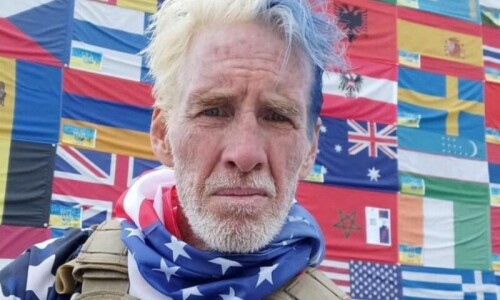
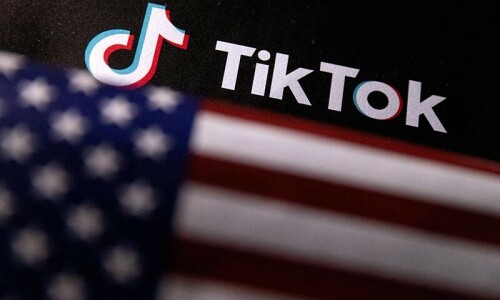
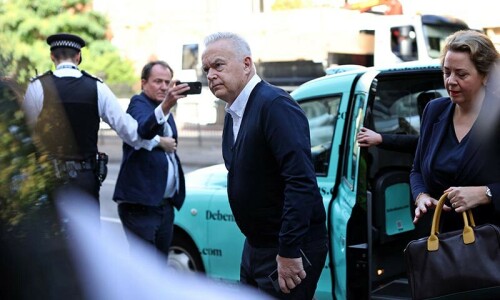





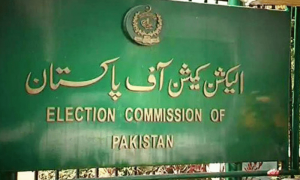
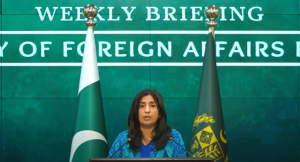
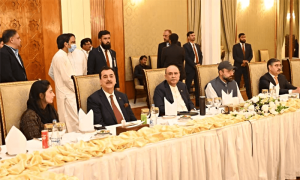



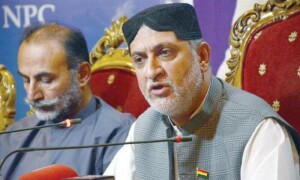


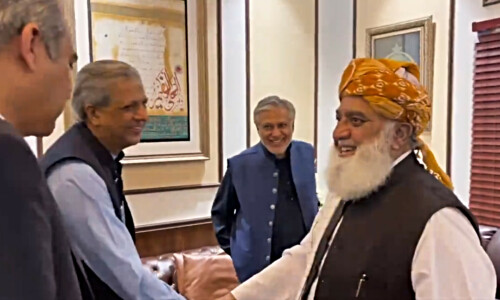
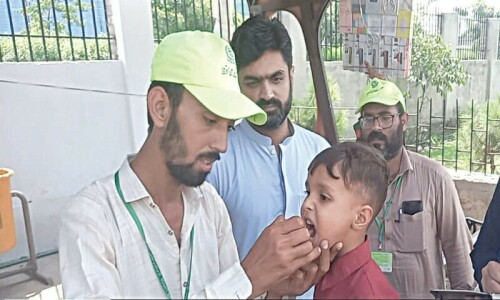

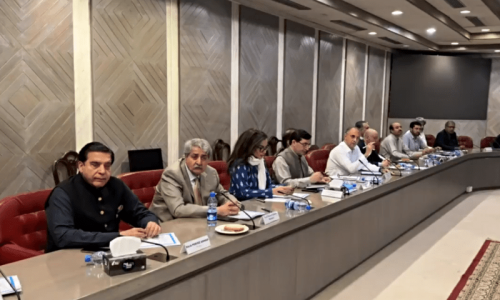

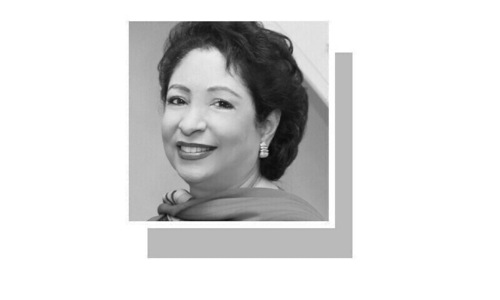





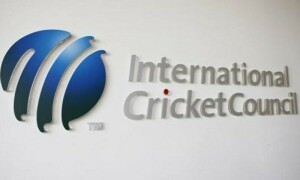
Dear visitor, the comments section is undergoing an overhaul and will return soon.